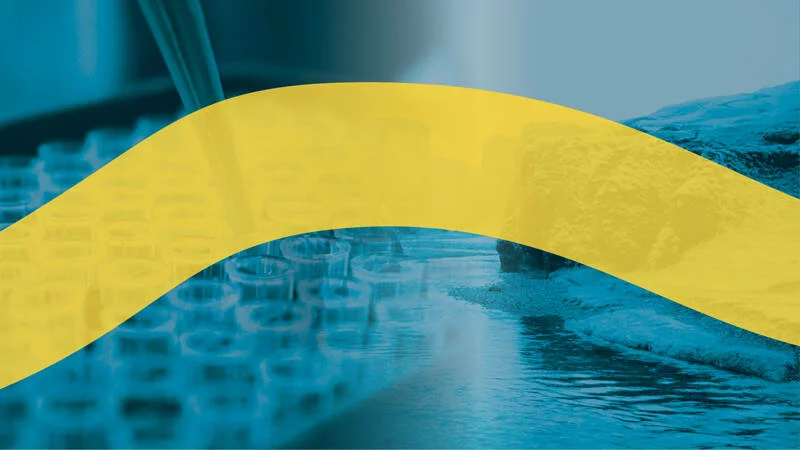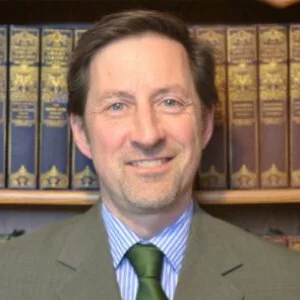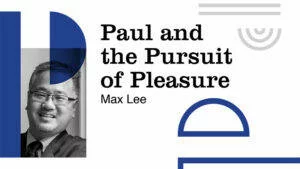If you have ever played chess or some similarly structured game with someone of comparable experience, you understand that the quest for certainty can seem particularly elusive. For any one move, the number of possibilities is quite limited, often restricted to a single option or two.
In chess as with much else in life, we are accustomed to the eventual outcome being completely uncertain, even though along the way, individual steps are more probable or certainly determined for us.
Like the outcome of a chess game, human living is wide open to possibilities about which we can sometimes only vaguely fathom. This explains in part why human beings turn to religious faith to help make sense of uncertainty. Living is not reducible to computation however, and as the philosopher Alva Noë says in his brilliant little book Out of Our Heads: Why You are not your brain and other Lessons from the Biology of Consciousness, we do not think as a consequence of a pure inner logical procedure. We think because we are constantly involved with the world. To a great extent, we know because we first trust what is trustworthy in the world.
Certainty, Belief, and Judgment
I would say that we need to go one giant step further and say that our living and thinking comes about also because of our involvement with God whose creation of a world is itself the first divine act of trustThe randomness and unpredictability that accompanies faithful living does not seem to make life more certain than a human life that lacks faith. that there would be creatures like us worthy of being its stewards. Does the gift of God’s love in giving meaning to our lives bring certainty, however? The randomness and unpredictability that accompanies faithful living does not seem to make life more certain than a human life that lacks faith. But what could this mean?
Let me cut to the chase: certainty is a human illusion, not the assurance of the gift of faith. In Christian theology, we often read accounts of personal faith that are prolific and profound yet marked by doubt. Thomas the apostle has an encounter with the risen Lord that is conveyed by the Gospel of John as hinging on converted belief, not certainty. John 20:28-29 reads in part, “Because you have seen me, you have believed; blessed are those who have not seen and yet have believed.”
Do beliefs offer certainty? What is belief? Common assumptions have it that belief is something private, arrived at in accordance with a mysterious set of assumptions, inferences and even on the basis of intuition. As I learned in graduate school, the nature of what we call belief is actually public not private. Beliefs are common in any discipline and are held by people without faith as well as by people of faith. We hold beliefs because we make judgments, which form in our minds because we are able to trust other persons and institutions.
Recently, I was tested for asthma in a new hospital that uses state of the art computers that connect to tubes and a mask into which is fed a vapour solution that I had to inhale before exhaling as hard as I could. The computer that runs these lung function tests registered breathing impairment. Doing the test with a technician who ran the test and interacted with the computer programme in a habitual yet sophisticated way, I realized that I had to trust her knowledge of how to work the computer and her ability to interpret its readings. I believed in her expertise as well as that of the hospital team that purchased and maintained the equipment. Belief is common everyday judgment. Did I have certainty? No, but had I sought it, I would never have risked taking the asthma test and therefore, I would not have been able to rule out asthma as a cause for some mild symptoms of occasional wheezing.
Did Thomas have certain knowledge of Jesus’ rising? No, but he had the testimony of the other disciples and so he had sufficient evidence to believe that Jesus was alive, yet he sought out more. The biblical passage goes out of its way to state that belief without seeing is more laudable than belief on the basis of sight. Seeing is not believing, because it’s not even the same thing as knowing.The biblical passage goes out of its way to state that belief without seeing is more laudable than belief on the basis of sight. Seeing is not believing, because it’s not even the same thing as knowing. Thomas’ quest for more evidence was accommodated to him by Jesus. Yet his doubt (and desire for certainty) was an inhibition, not a requirement for belief. Indeed, more broadly, it is fair to say that the quest for certainty undermines us, because everyday tasks would become impossible for us to undertake with any confidence if we held on to the promise of certainty. On the other hand, by relying on our judgment in order to form beliefs, we can at least be confident about the course of action we take or the nature of faith we choose to accept.
Beginning with the philosophy of René Descartes (d. 1650), much of modern thought has been possessed by a search for certainty that eludes our cognitive capacities in the end. Mistakenly, certainty has come to be associated with science, but in the twentieth century, philosophers and historians developed skills that pay attention to the methods of practicing scientists and concluded that certainty is nowhere in the picture. One philosopher, Karl Popper, stressed the idea that science proceeds because of an ability to falsify claims: whatever could not be falsified was not science. Most philosophers have since moved even further along from Popper’s initial corrective by pointing to the social and discursive nature of science.
But let’s return to judgment: those that lead to right belief are common to both theology and science, as well as other disciplines. Bernard Lonergan writes that “belief plays as large a role in science as in most other areas of human activity.”Bernard Lonergan, Method in Theology (Seabury Press, 1972), 42. So, if belief is a cognitive commonality, the difference between science and faith might be expressed in terms of the difference between knowledge and wisdom. Belief on the basis of faith needs proclaiming, so that the possibility of salvation is made known. As the Christian church has always taught, no one is assured with certainty of their salvation: our thoughts are not God’s thoughts (Isa. 55:9). Knowledge in science, while dependent on the shared beliefs of disciplines, is proclaimed neither for wisdom nor salvation but rather for the more modest goal of sharing knowledge in order to solve problems.
Galileo, Copernicus, and Bessel’s Proof
Some people will be skeptical about whether the presence of beliefs in different disciplines actually means anything. They might argue, for instance, that the natural sciences have been transformed over the past few centuries on the strength of the increased roles played by evidence, testing, and experimentation. In fact, however, modern science is replete with tales of woe that arise from overconfidence—the ever present temptation of certainty. The case of Galileo is an interesting case in point. Although he is seen as the exemplary cause célèbre for science, facing an implacable institutional religion, Galileo’s defense of Nicolas Copernicus’s theory that the earth revolves around the sun was something that Galileo did not actually prove.If Galileo had been more humble over his discoveries while maintaining his emphasis on the proper roles for the Bible and science, history could have been so much different. By that, I mean that while Galileo discovered the moons of Jupiter (which provided a model analogy for how the earth might revolve around the sun), studied sunspots and the phases of Venus, he inferred from these observations that the heliocentric theory was correct. But he did not prove it.
The proof for heliocentrism did not come until 1838 when Friedrich W. Bessel discovered the stellar parallax for the star 61Cygni. The regular back and forth movement in a distant star (what is termed the ‘parallax’) could only be accounted for by the earth’s movement around the sun—our own movement in other words. Galileo had insisted two centuries prior that he had all the proof necessary to defend Copernicanism. Well, we know that he was right about heliocentrism, but he was wrong that he had all the proof necessary to hold that belief. And in fact, as some historical studies have shown, if Galileo had been less insistent over the sufficiency of his proofs, his defense of heliocentrism might not have attracted the negative attention of the Inquisition. If Galileo had been more humble over his discoveries while maintaining his emphasis on the proper roles for the Bible and science, history could have been so much different. After all, Galileo remained a church-going Christian till the day he died. He had no problem repeating the motto of a Roman Cardinal Baronius: “the Holy Spirit’s intention is to teach us how to go to Heaven, and not how the heavens go.”
Let me end by quoting Thomas Aquinas, who elaborated on the Apostles’ Creed by noting the following:
But our manner of knowing is so weak that no philosopher could perfectly investigate the nature of even one little fly. We even read that a certain philosopher spent thirty years in solitude in order to know the nature of the bee. If, therefore, our intellect is so weak, it is foolish to be willing to believe concerning God only that which man can know by himself alone. And against this is the word of Job: ‘Behold, God is great, exceeding our knowledge.’ (Job 36:26)Thomas Aquinas, “The Apostles’ Creed” Prologue.
And so the quest for certainty is more like the misguided quest to be God rather than be with God. The contemporary sciences, for all their vast technical prowess and astounding success, cannot provide the certainty that is beyond the grasp of the judgment that God created us to use for the good.







Comments
Be the first one to make a comment!